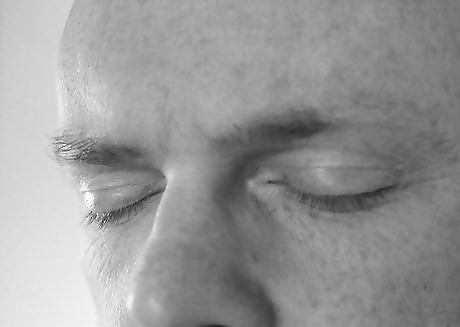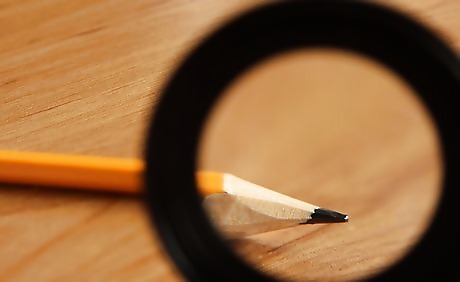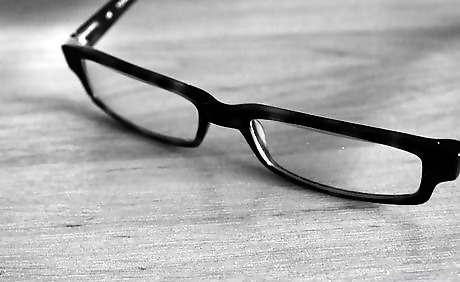
views
Essentially, insight is the best way to learn more about a subject, about life and if we are specialized, to end stress and understand the mind and body dynamic as a whole, rather than bits of our emotions, thoughts and reactions.
This article provides one guide to developing your own insight, as well as how to apply the understanding gained to life's problems.
Developing the Foundations

Seek to understand what insight is. Insight in essence is both knowledge and understanding derived from an "inward sight", or more simply, looking inside your own mind and body and observing it. It can be a natural process, or an intentional process as sometimes you need to see things differently to see them clearly, but most important is knowing which lens or style to use to make it clear. When seeing and studying something, you might gain an understanding on how and why it happens simply by seeing it as it happens and not passing judgement. The more you watch, and the greater your depth of observation, the more information you can pick up. Knowledge is the understanding that is gained and is the part that you can use. In its simplest example, you might learn that fire is hot, but only through touching its heat. Likewise if you don't remember that it's harmful and use that knowledge next time you reach to pick up something hot, you will burn yourself. The skill is all about developing insight so it becomes more than basic survival skills, but a way to improve skills and our quality of life and learn things on a much deeper level of understanding.

Start to consider ways to be able to observe your subject. General mindfulness and meditation is a classic format when observing the mind and body but also for any subject you wish such as when gazing at a beautiful garden, complex poetry or art or when studying a recipe book, instruction manual or textbook. Its best to be aware that meditation (or any means used to gain an inward perspective) typically consists of two things: 1. The initiation of a laboratory-like or study field literally the moment you pay attention to it. Generally, everyone has practiced observation and had insights of various degrees throughout their life, but it generally is on a superficial level until the person decides to get to the bottom of the matter, or when they have observed so much of the subject it is more apparent. 2. When practiced to the degree of deep focus or absorption, meditation allows the mind to become far more clear, calmed and focused and can look at things without distortions or personal agendas.

Consider this metaphor. Seeing a sample under a microscope is a lot more detailed and focused than just looking at the sample in the hand. Developing the mind through meditation as well as other methodologies both sharpen your focus and gives you a clearer boundary on the thing you focus on. However, it would be inaccurate to conclude that very deep meditation is the only way to the goal itself although it certainly does help. You might see the finer detail through a microscope certainly, but an example to consider is how expert geologists can tell the quality and type of soil in their hand just through the naked eye, or by using specific gravity tests and other chemical analyses. These skills are learned through experience and testing their understanding. They might have used a microscope in their training and career, or they might never have done so. In this instance, it is like a bird with two wings, observation - such as meditation - is one wing, examining and understanding is the other wing. If the bird has only one wing it can't fly well, it will just go round in circles.

Learn about some of the traps and misconceptions that can block the attainment of insight. They typically arise more in an intentional, guided or an intensive style of study practice rather than those rare but life changing insights that simply happen. If you are familiar with them, you can at least recognize them when they happen and if they do pop up, arguably you can learn even more if you turn your attention to these very obstacles. There is occasionally the idea that "the means to the end" is actually the "end" itself. The complication here is the process or relationship to the process has become more important than focusing on the subject. This can be quite a common experience many go through and some do end up going to universities and colleges all their life or studying the mind in meditation in a routine style, but never really making any breakthroughs. Try not to rush things. This is another common challenge as people hope to find a magic switch to get full understanding on their subject be it science, psychology, arts & literature and so on, or a cure for their troubles. As the metaphor goes, when the "penny drops" in the mind and things make sense, this often takes time to happen naturally. However, repeated observation and testing not only helps the penny drop sooner, but also the extent of the insight is broadened and many different facets can of the same experience can become clear. In this way, a person can learn to think and act more creatively and skilfully. Some also end up stuck with nowhere to go when the insight or knowledge gained is presumed as the goal itself. Insight is just one half of the story, the other half is doing something with it. Consider that a surgeon through his or her experience designs a new scalpel or forceps, but it's only until these tools are used in surgery that they are going to be useful. In the same way, care must be taken to continuously apply and test any insights gained as well as how to use them as practical tools, which in itself can expand the depth of understanding. The application of understanding relationships is most important, and it goes awry when people prefer to focus on the intellectual, rather than the practical. For example a chemist might discover a new medicine through testing samples, but if the treatment is never made available or ever taken by the patient, it does nothing. The medicinal discovery itself does not destroy the disease. In the same way, you have to apply your understanding to achieve the goal, for the discoveries are just a means to an end.
Developing a Practice

Develop your levels of observation and the subsequent knowledge that arises. Test it out, observe and study your subject. Be objective and look at everything as if you have never seen it before. Observe it as if it's a totally unique thing, but most importantly, observe your relationship or interaction with the experience and the object. The ways we can learn the most about a subject as well as how to gain the best outcome is to observe our relationships - how do we feel about the experience - is the mind open or closed to the experience? This helps you observe life more completely, rather than being selective, or allowing parts of the mind to cloud the issue. Ask yourself often to identify what you see, as you might not always know, even if you do identify it but a secondary feeling or idea arises, then identify that as well. Once you can identify them, you can explore them, just like once you've identified the pieces of the jigsaw puzzle, you can start to put the puzzle together and you can gain practical understanding and skills. Luckily, in essence there are very few cases when the solution to many of our life challenges aren't already within the problem we experience - or in essence, our relationship with the problem. By exploring the foundation of the problem, a solution can be found, or if a solution is simply impossible, then a person can then start to come to terms with accepting the realities of life and finding a silver lining or creative opportunity if they are practical. In life aspects, many of our frustrations, unhappiness, depression and sorrows happen because we aren't looking at things completely and applying our understanding, or observing the issue to understand it. Generally it is wise to go back to the beginning and examine the central facts and test those in relation to what you see. You might be studying to gain an insight into a maths project, but if you are too tired or not interested then it is useful to identify this feeling as this is your relationship with the subject.

Be sincere. Sincerity is actually deep in the practice and benefits of understanding. If you are seeing something that is real and can be retested to give the same result, then you will have to satisfy yourself that it is what it is. It might mean consequently you have to let go of other ideas or wishes, but ultimately that is up to you to let them go, because you cannot progress beyond these hurdles. You have to climb over them until you can leap over them.

Keep observing the subject in order to improve both the depth of understanding and observation. For example, it took a while until you could repeat the alphabet without error. Some people can learn it quickly, but these are very rare people so it pays to keep observing and learning. Very often things can suddenly make sense (like a "light-bulb moment"), even things you have seen dozens of times before. Through life experience, your mind develops the tools needed to put together pieces of the puzzle, as well as identify different angles and ways that the experience can be improved. The mind is often able to relate what has been seen to prior experiences in order to make connections. By using an inward observation, eventually even this tool and skill gathering becomes apparent.

















Comments
0 comment